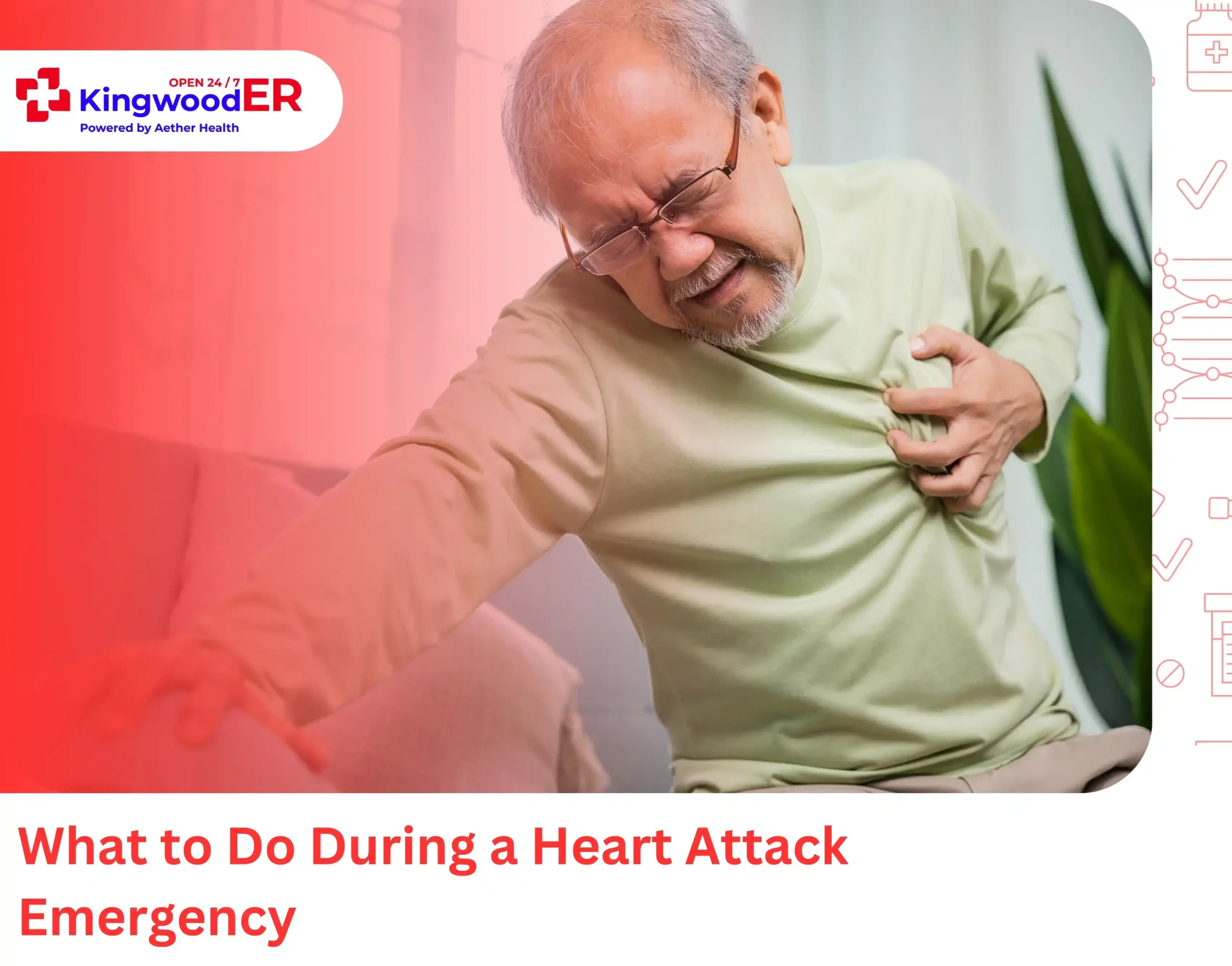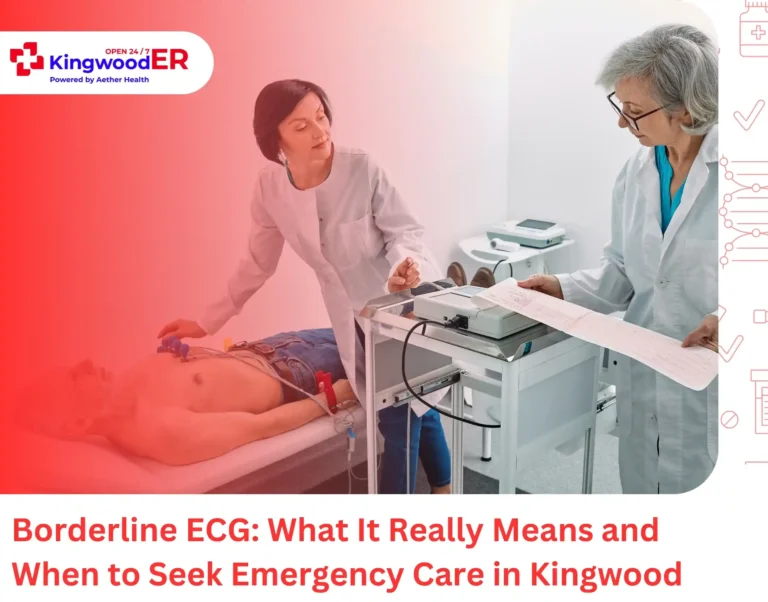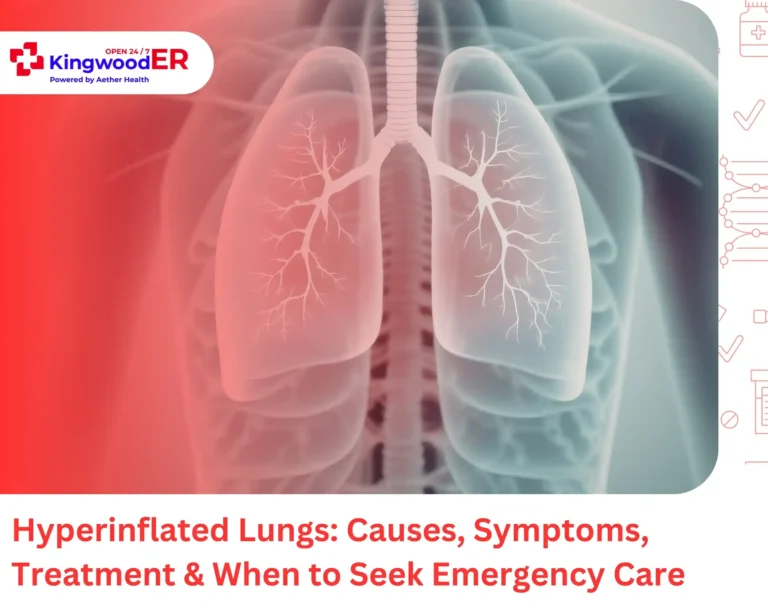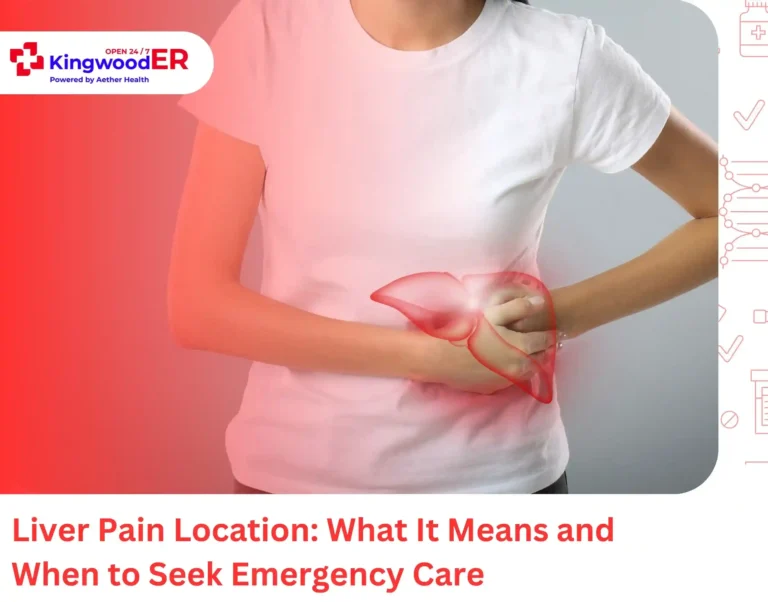Most people freeze when they witness someone having a heart attack, unsure whether their help will save or harm. Learning what to do when someone is having a heart attack turns that paralyzing uncertainty into life-saving action.
The reality is that proper intervention saves more lives than waiting for professional help. Every compression, every calm word, and every correct decision you make increases survival odds.
Here’s exactly what to do, whether you’re helping someone else or experiencing symptoms yourself.
Recognizing Heart Attack Warning Signs
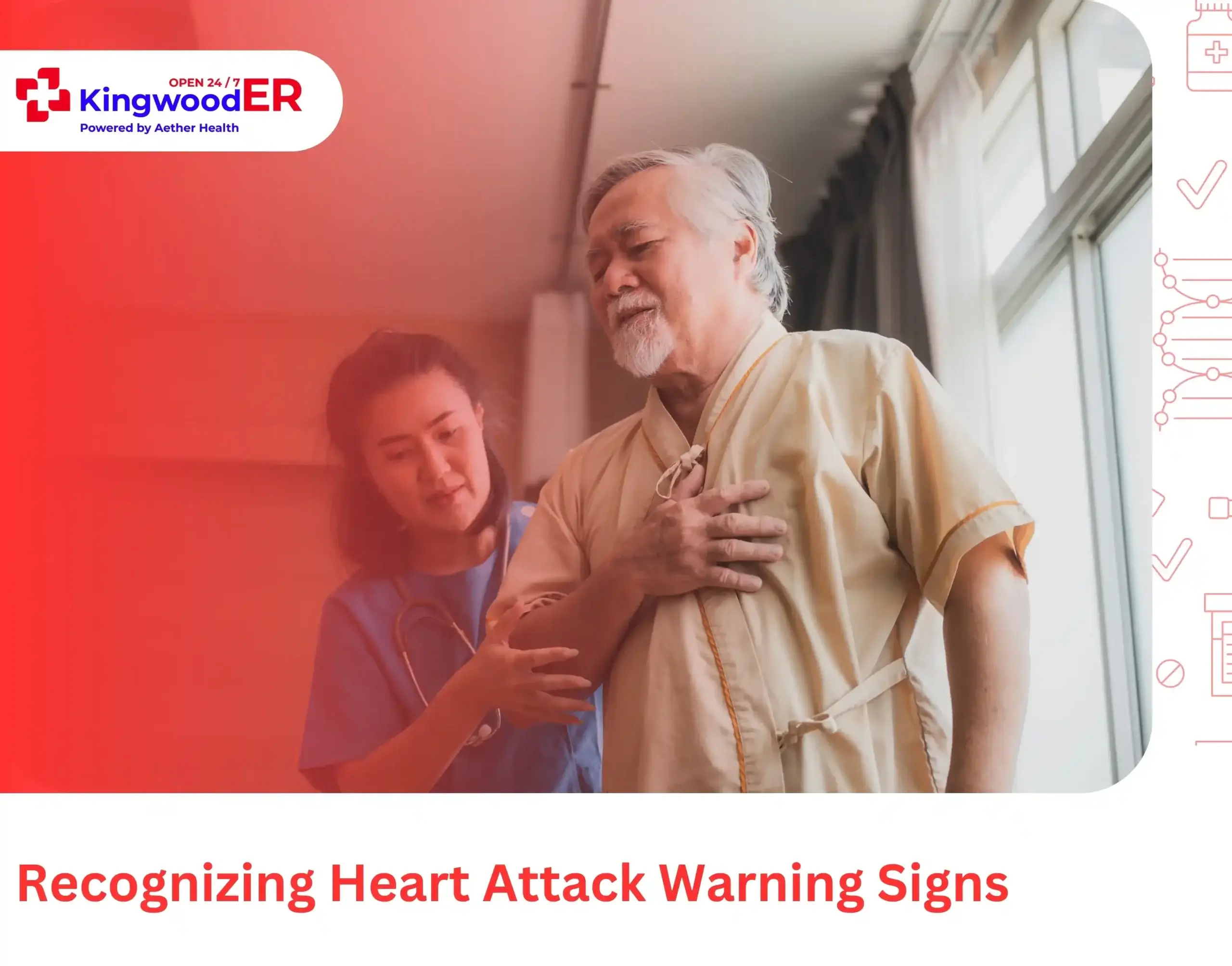
Heart attacks don’t always start with dramatic chest-clutching. Many begin with subtle discomfort that people dismiss as indigestion or stress. Watch for these warning signs:
- Chest discomfort that feels like pressure, squeezing, or fullness lasting more than a few minutes. Many describe it as heavy pressure or tightness rather than sharp pain.
- Pain spreading beyond the chest to the arms, neck, jaw, back, or stomach. Left arm pain is common, but discomfort can appear anywhere in the upper body.
- Breathing difficulties where the person seems winded without exertion or struggles to catch their breath while talking.
- Cold sweats, nausea, or vomiting that appear suddenly, especially when combined with other symptoms.
- Unusual fatigue or weakness that feels overwhelming and different from normal tiredness.
- Women may experience additional warning signs including upper back pain, shoulder discomfort, or unusual indigestion that doesn’t respond to antacids.
People experiencing heart attacks often downplay their symptoms or insist they just need rest. Trust your instincts if multiple heart attack signs appear together or if someone’s behavior seems unusually distressed.
What to Do When Someone Is Having a Heart Attack: 5 Immediate Steps
When heart attack symptoms appear, call 911 first, keep the person calm and seated, give aspirin if safe, and prepare for CPR if they lose consciousness.
1. Call 911 Immediately
Make the call before doing anything else. Emergency responders can provide guidance over the phone and arrive with equipment you don’t have access to. Give the dispatcher your exact location, describe the symptoms you’re observing, and follow their instructions.
2. Keep the Person Calm and Comfortable
Help them sit upright with their back supported, or have them lie down with knees bent if sitting feels uncomfortable. Loosen tight clothing around the neck, chest, and waist to improve circulation and breathing.
Stay calm yourself. Speak in a steady, reassuring voice. Tell them help is coming and that you’re staying with them. Avoid letting them walk around or exert themselves in any way.
3. Give Aspirin if Available
Ask if they’re allergic to aspirin or take blood thinners. If neither applies, give them one regular-strength aspirin (325mg) or have them chew it if swallowing is difficult. Chewing works faster than swallowing whole.
Skip this step if they’re unconscious, vomiting, or you’re unsure about allergies. When in doubt, wait for emergency responders rather than risk complications.
4. Get to the Nearest Emergency Room
Take the person to the nearest ER immediately while emergency responders are en route. Freestanding ERs provide the same cardiac emergency care as hospital ERs but with shorter wait times and faster access to treatment.
We can perform immediate ECGs, cardiac enzyme tests, and administer critical medications to stabilize heart attack patients. Time matters most. Get to the closest emergency facility that can start life-saving heart attack treatment immediately rather than driving past care to reach a specific hospital.
5. Be Ready to Perform CPR
Monitor their breathing and responsiveness. If they become unconscious and stop breathing normally, you’ll need to start CPR immediately. Place your hands on the center of their chest and push hard and fast at least 2 inches deep at a rate of 100-120 compressions per minute.
Let the chest fully recoil between compressions. If you’re trained in rescue breathing, give 2 breaths after every 30 compressions. If not trained, provide continuous chest compressions until emergency responders arrive.
Even if you’re not CPR-certified, emergency dispatchers can guide you through the process over the phone until help arrives.
What to Do if the Person Becomes Unconscious
If they lose consciousness during a heart attack, immediately assess their breathing and begin the CPR steps you prepared for earlier.
Quick Assessment:
- Tap their shoulders firmly to confirm they’re unresponsive
- Check for normal breathing for 10 seconds maximum
- Don’t waste time checking for pulse if you’re untrained
If not breathing normally: Start chest compressions immediately using the technique described above.
If breathing normally: Turn them onto their side in recovery position to keep airways clear. Continue monitoring their breathing closely. Be ready to start CPR if it stops.
Heart Attack Emergency Treatment at the ER
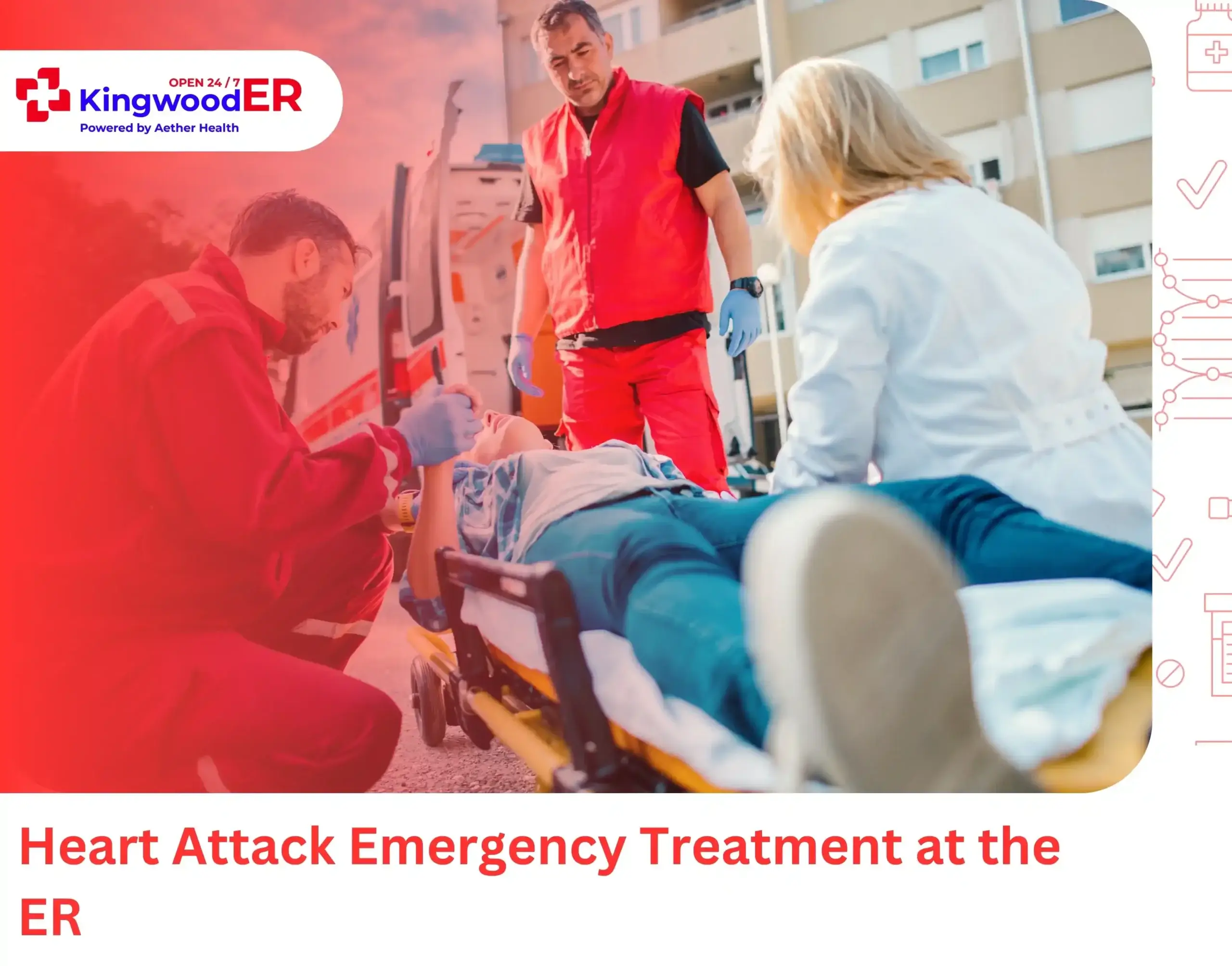
Freestanding emergency rooms, like the Kingwood ER, provide immediate cardiac care to stabilize heart attack patients and minimize heart muscle damage. Here’s heart attack emergency treatment protocol in the ER:
Immediate Assessment:
- ECG (electrocardiogram) within minutes to identify heart rhythm abnormalities
- Blood tests for cardiac enzymes that indicate heart muscle damage
- Chest X-ray to check for complications
- Continuous heart monitoring throughout treatment
Emergency Medications:
- Blood thinners to prevent further clot formation
- Pain relief and anti-anxiety medications
- Blood pressure and heart rate control medications
- IV fluids and oxygen therapy as needed
Stabilization and Transfer Coordination:
For cases requiring surgical intervention like angioplasty or stent placement, we provide crucial initial stabilization and coordinate rapid transfer to specialized cardiac centers.
We deliver the same emergency cardiac protocols as hospital ERs but often with faster door-to-treatment times. Every minute saved in the initial response phase helps preserve heart muscle and improve recovery outcomes.
How to Prepare for Heart Attack Emergencies
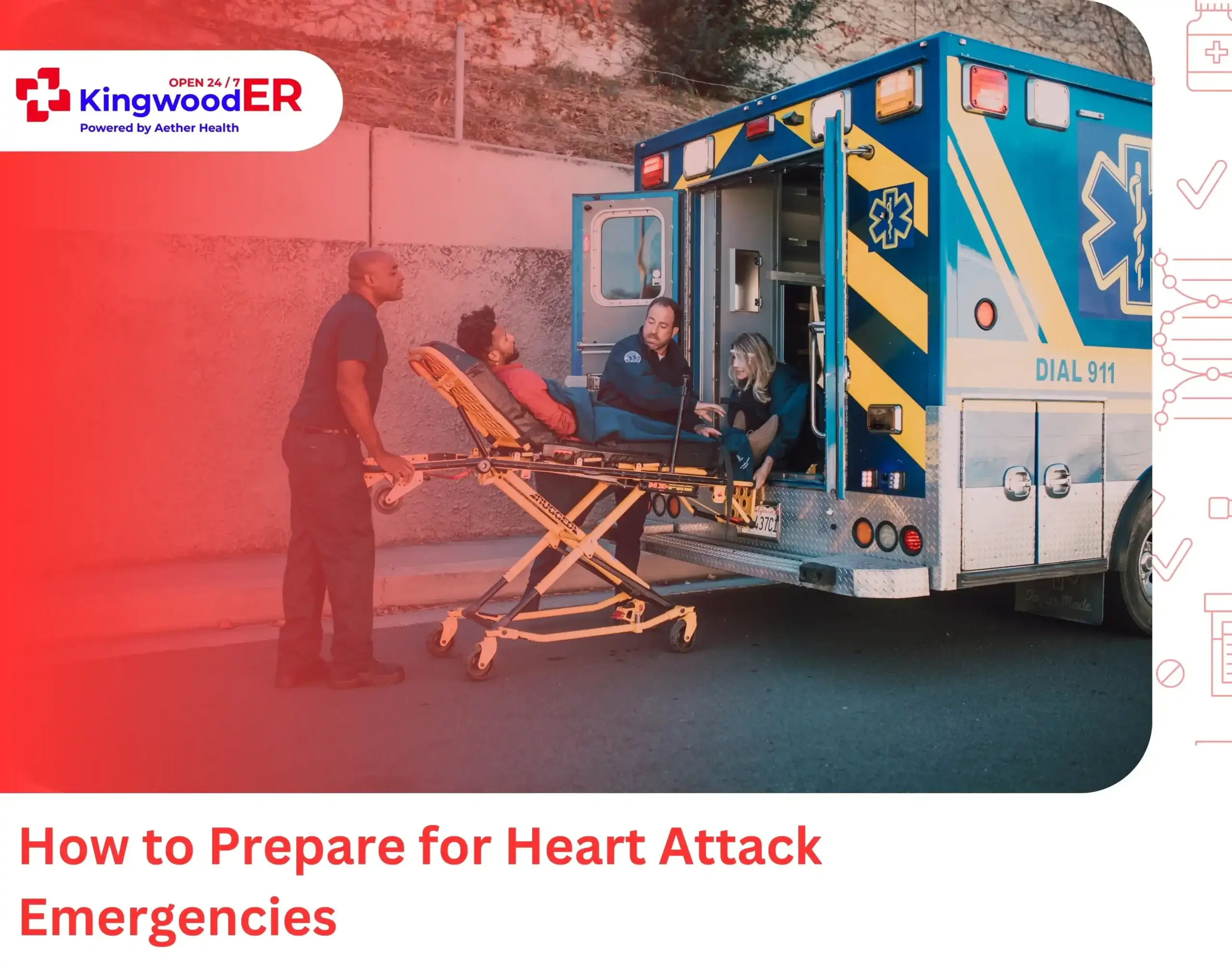
Being prepared before an emergency happens gives you confidence to act quickly and effectively when someone needs help.
Learn CPR and First Aid
Take a hands-on CPR course and practice the correct hand placement and compression depth. Most courses take 2-4 hours and include certification valid for two years. Many workplaces and community centers offer free classes throughout the year.
Know Emergency Contacts
Program ICE (In Case of Emergency) contacts in your phone and keep a written list in your wallet. Include local emergency numbers, family physicians, and any specialists for people with known heart conditions.
Know the fastest route to the nearest emergency room from your home, workplace, and frequently visited locations. Save the address in your phone’s GPS for quick access during stress.
Understand Risk Factors
Learn which friends and family members have higher heart attack risk: those with diabetes, high blood pressure, high cholesterol, smoking history, or family history of heart disease.
Keep a mental note of medications, especially blood thinners, which affect emergency treatment decisions. Ask about aspirin allergies during calm moments, not during emergencies.
Being prepared means you can focus on helping instead of figuring out what to do during emergencies.
Key Takeaway
Quick action saves lives during heart attacks. Call 911, keep calm, give aspirin if safe, and get to emergency care fast. Your preparation and knowledge can make the difference between life and death.
ER of Kingwood stands ready 24/7 with the same cardiac emergency protocols as hospital ERs, with faster treatment times for heart attack emergencies.

